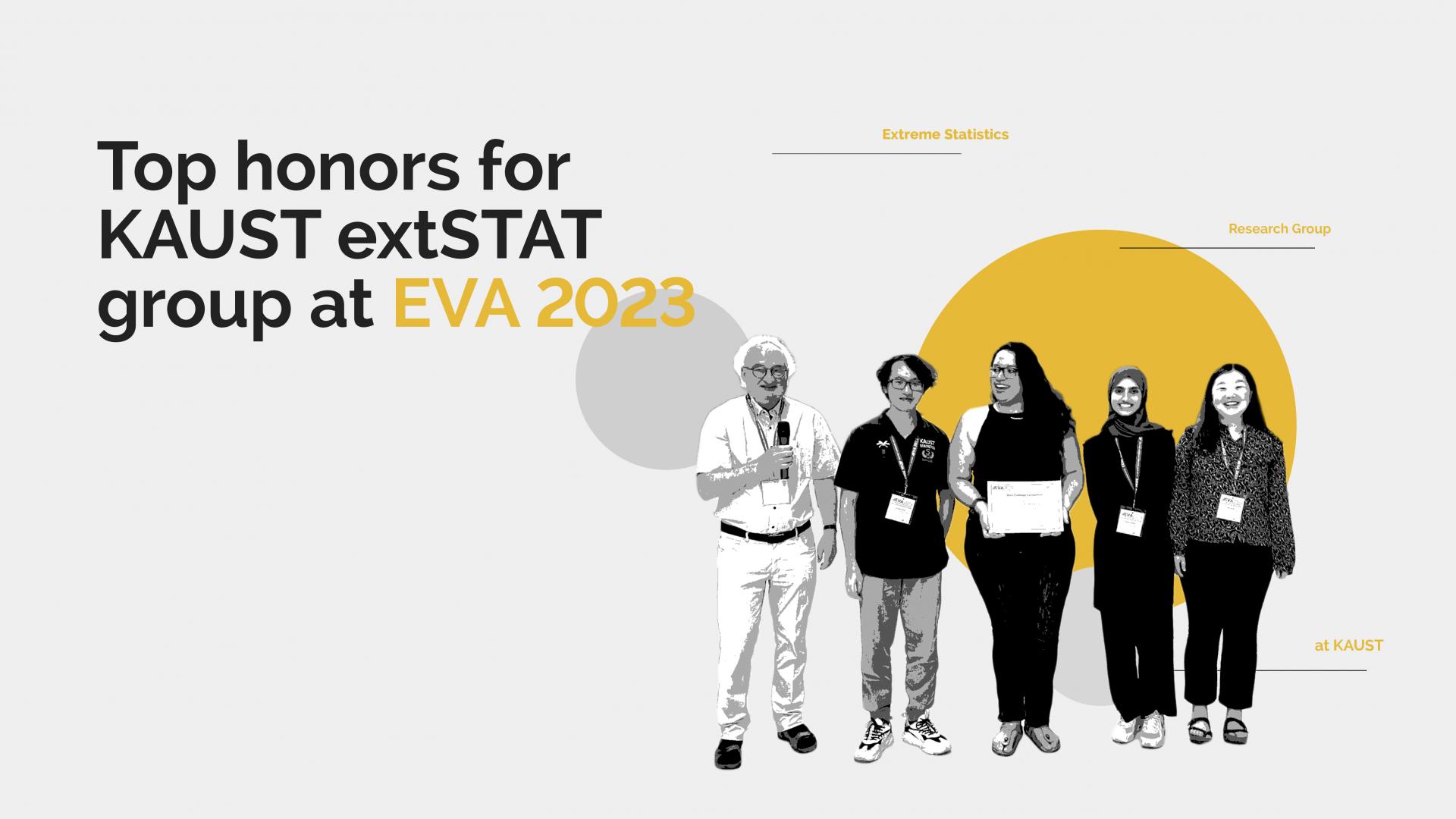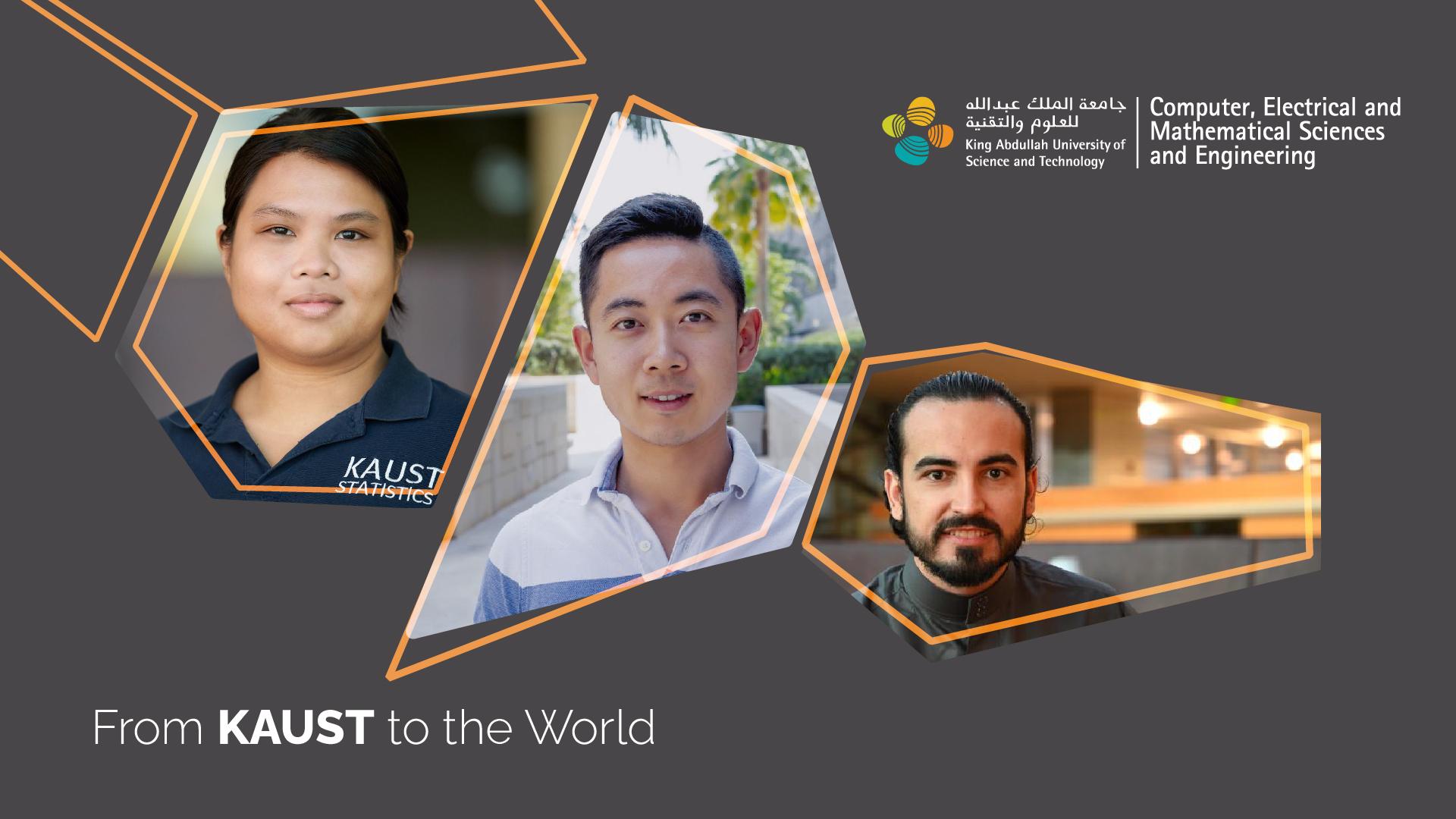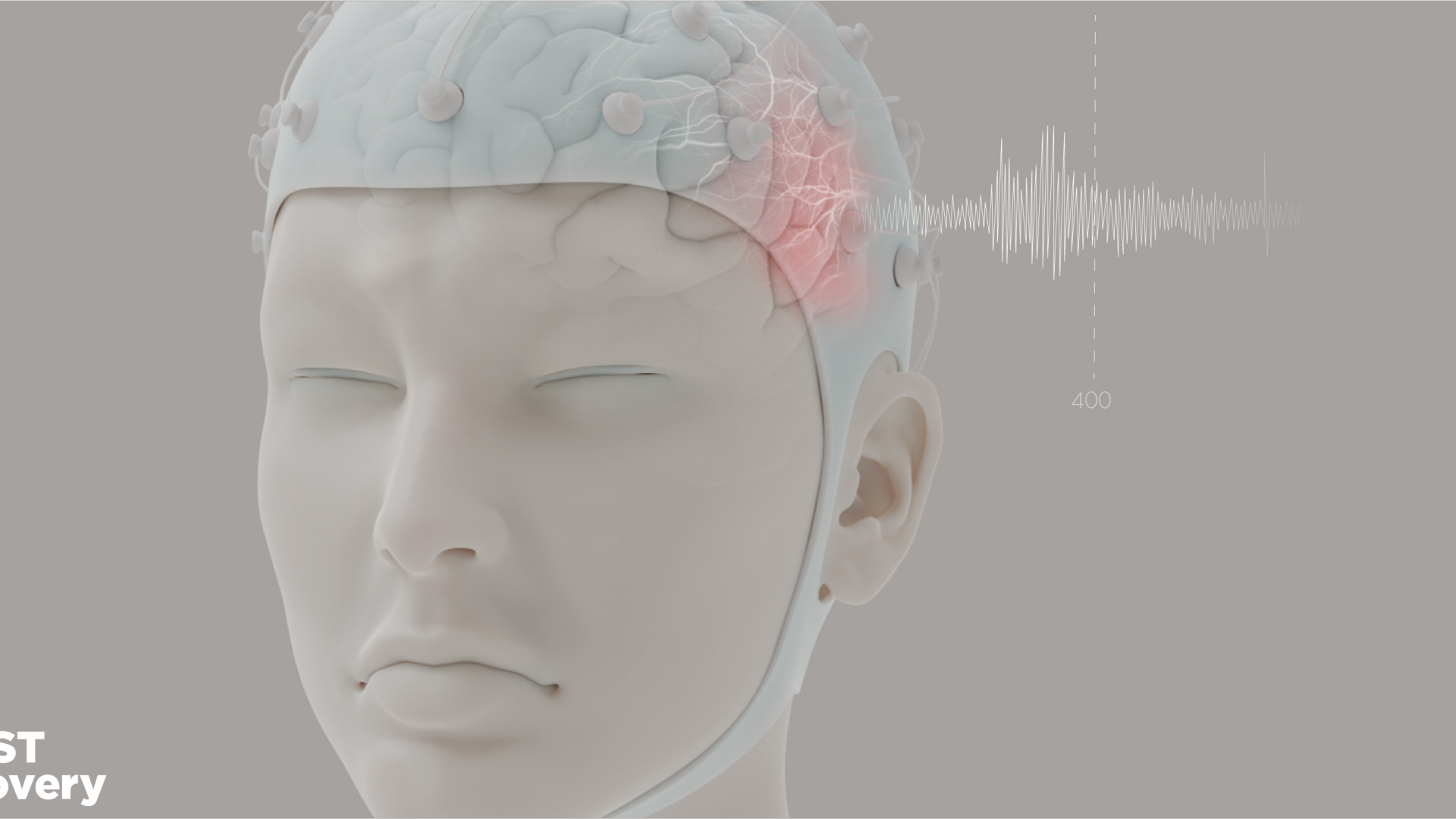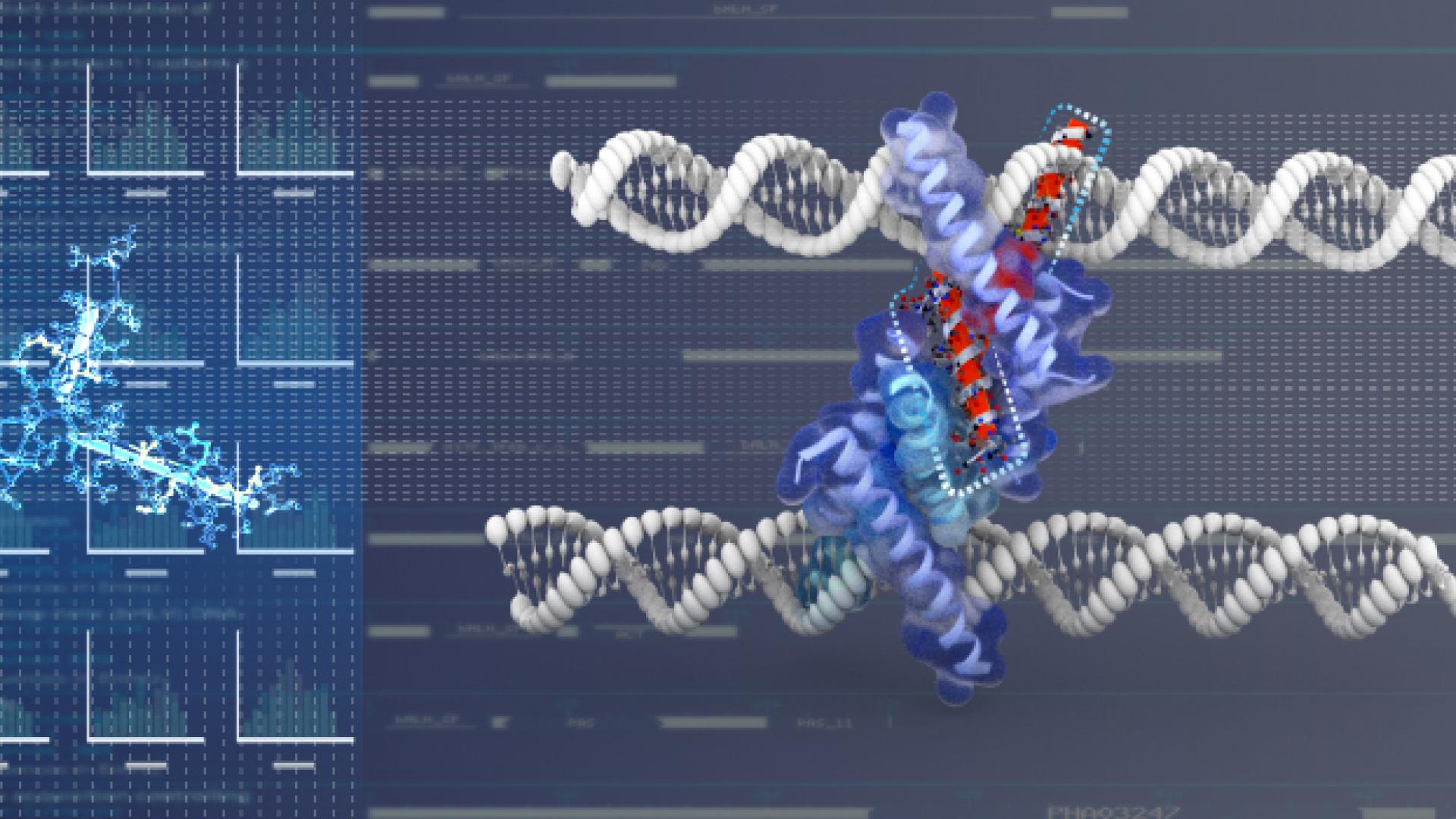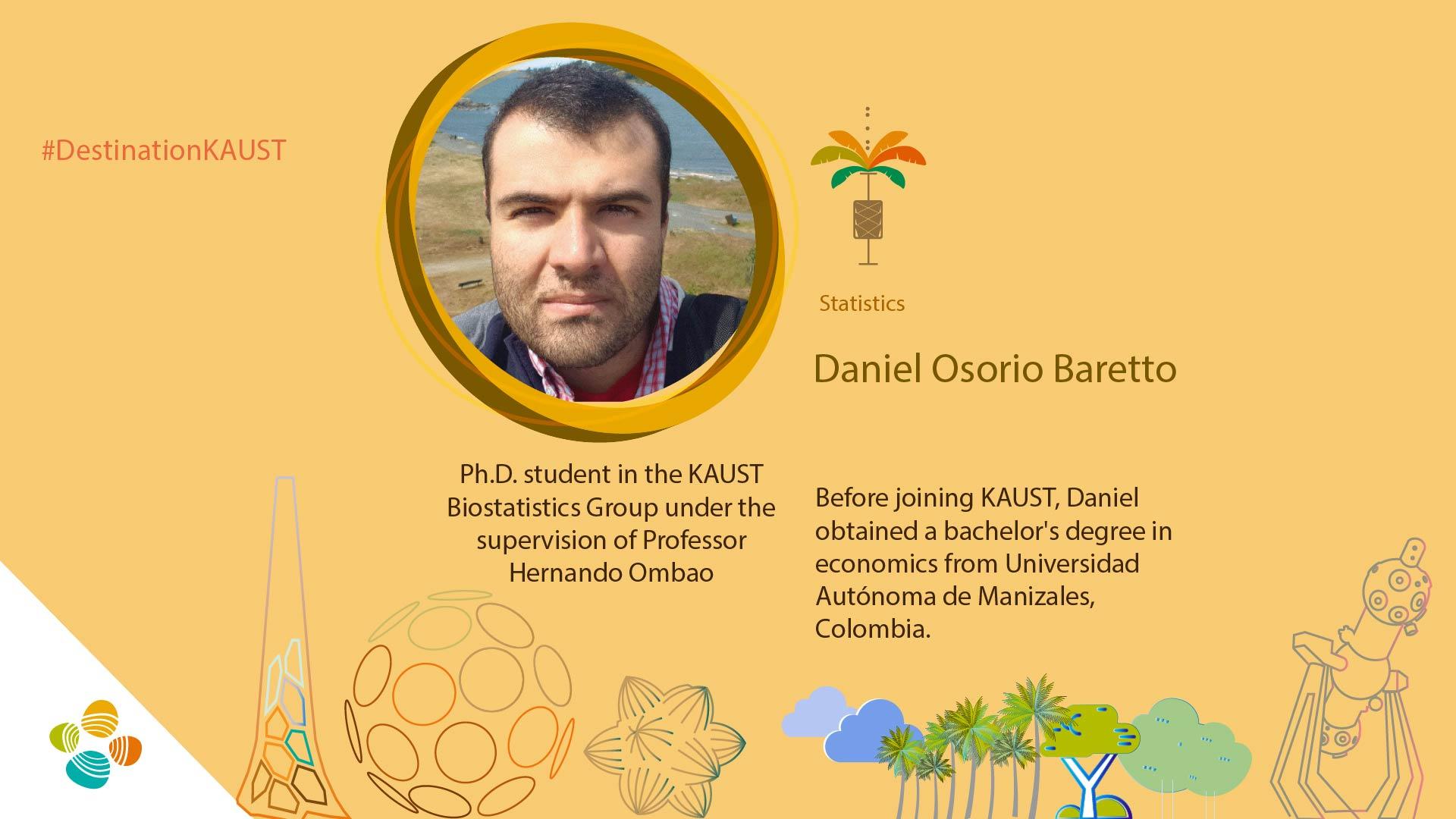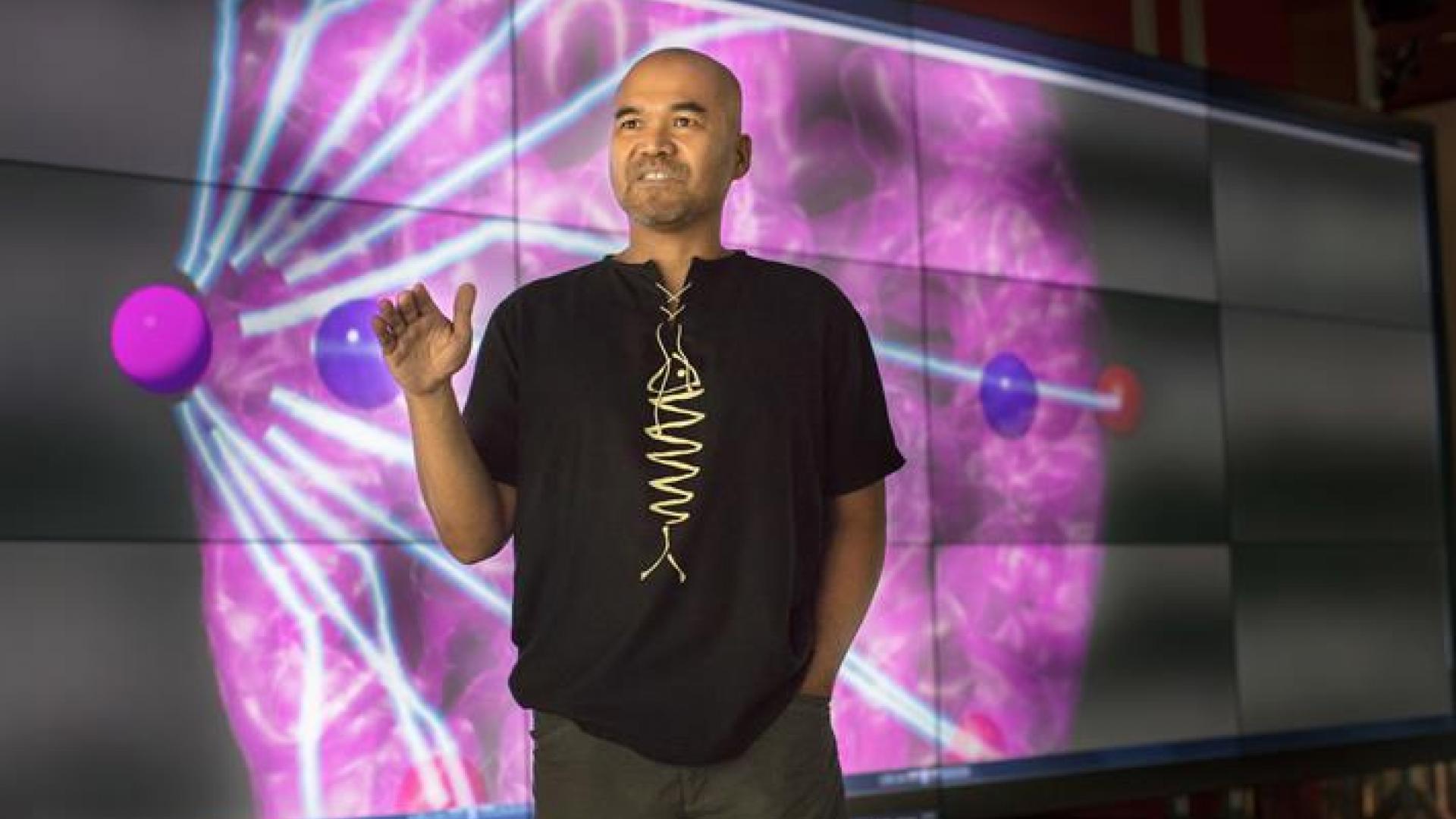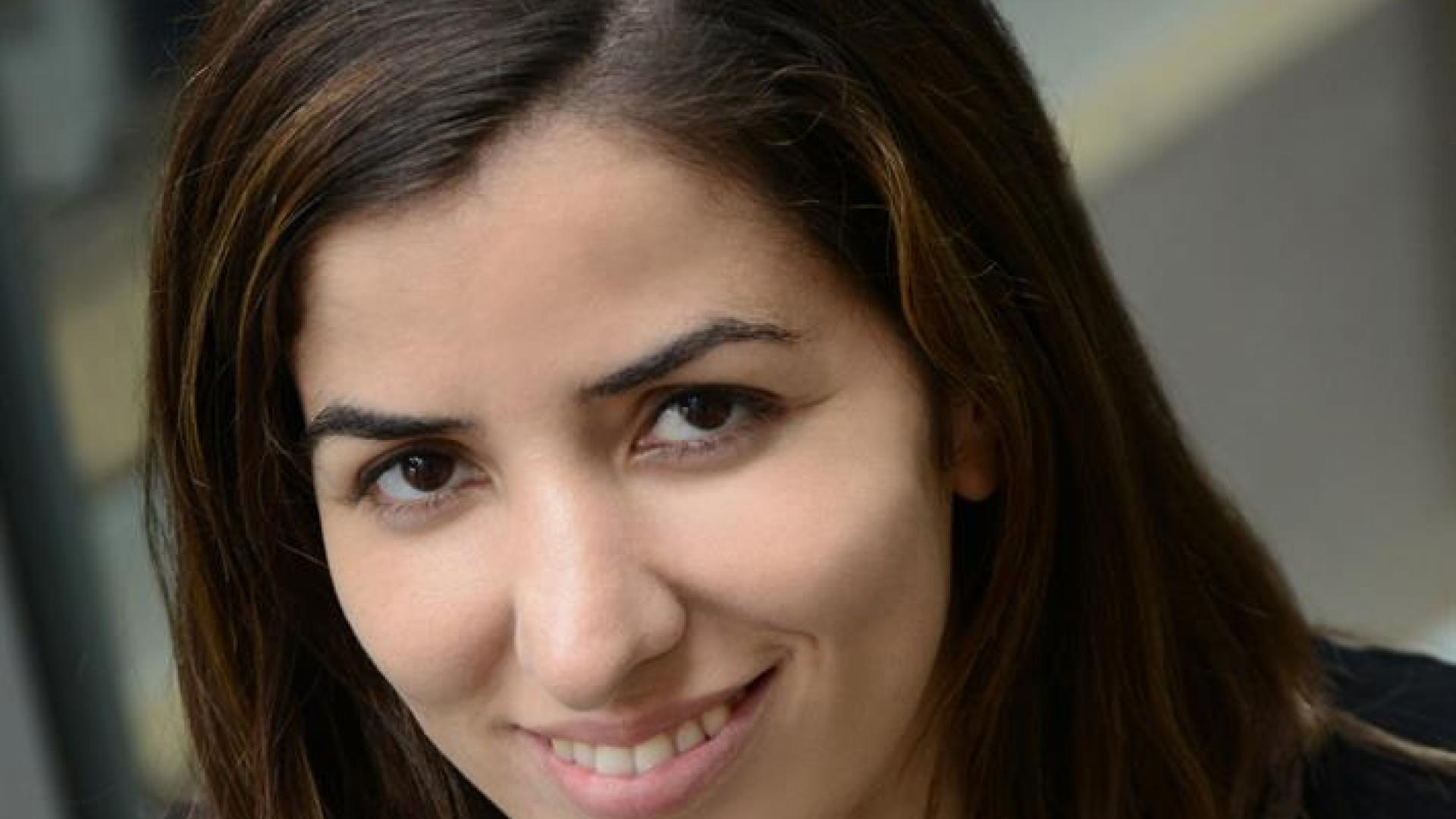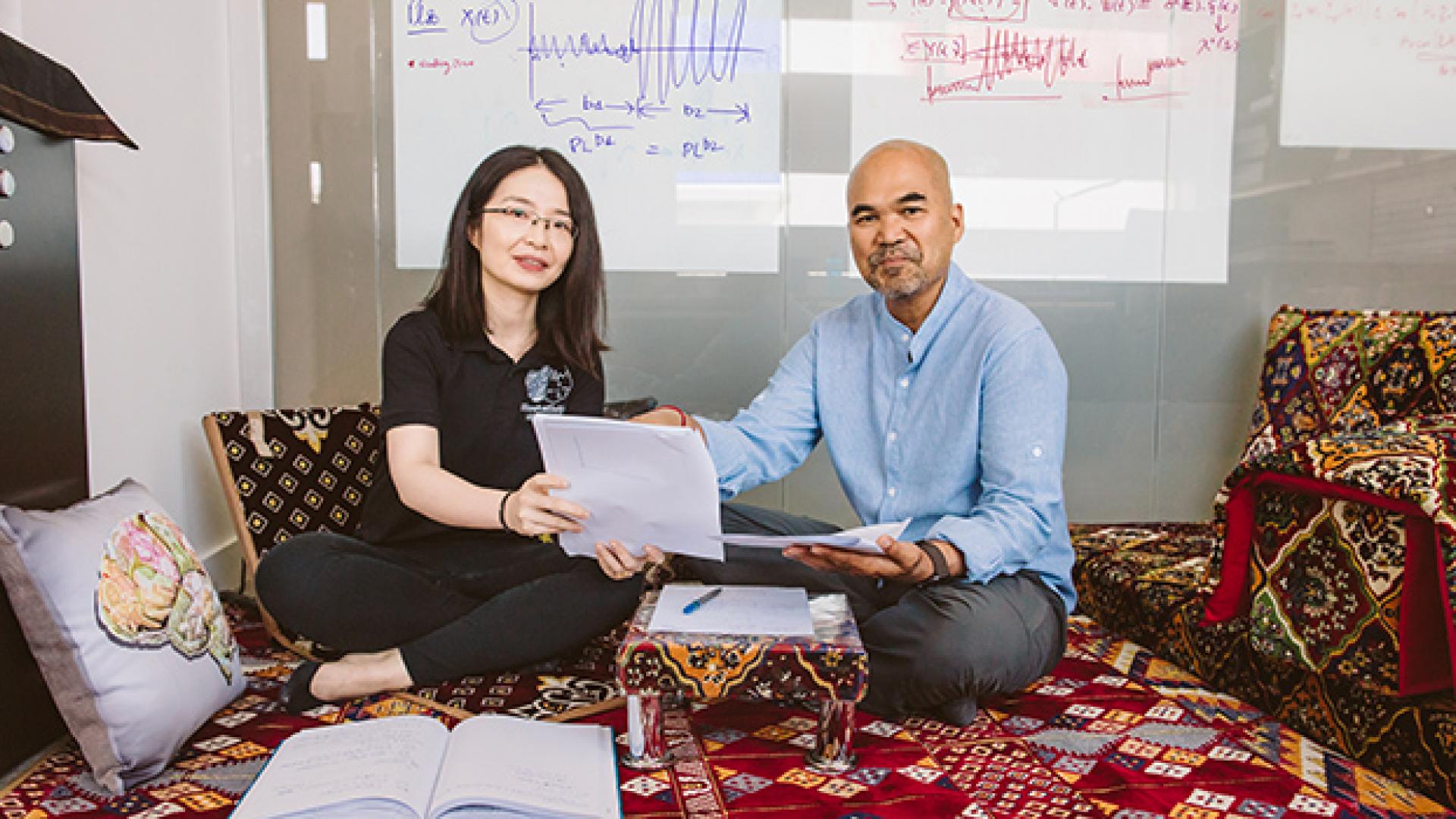KAUST extSTAT Research Group wins prestigious awards at EVA 2023 Conference in Milan.
KAUST graduates are characterized by the rigor of their Ph.D. programs, the long hours spent in the lab and classroom, juggling professional and personal commitments, achieving a work-life balance and, more recently, the ability to adapt to a global pandemic.
KAUST Ph.D. statistics student Paolo Victor Redondo was selected as a runner-up in the American Statistical Association’s (ASA) Statistics in Imaging Section 2023 Distinguished Student Paper Award Competition
CEMSE researchers Matheus Guerrero, Raphaël Huser and Hernando Ombao developed a new approach for analyzing seizures in epilepsy patients by applying extreme value theory to real EEG seizure data.
Novel statistical methods help tell the difference between "false positives" and true detections of protein domain hotspots that could be linked to cancer.
Daniel Osorio Barreto, is an economics graduate who joined KAUST this fall from Universidad Autónoma de Manizales, Colombia. He is as a Ph.D. student and member of the KAUST Biostatistics Group under the supervision of Professor Hernando Ombao.
By scanning past data for both partial and complete matches to current observations, a KAUST-led research team has developed a prediction scheme that can more reliably forecast the future trajectory of environmental parameters.
The statistics used to understand social networks reveal the diversity of functional connections in the brain.
Members of the KAUST American Statistical Association (ASA) student chapter recently came together for the group’s second online meeting held on Tuesday, November 10, 2020. The meeting served as an orientation exercise for new KAUST Statistics (STAT) Program students while also highlighting the shared experience of STAT Ph.D. candidates: Jian Cao, Wanfang Chen, Yuxiao Li, and Gaurav Agarwal.
Let’s discover the world of the statisticians at KAUST and be ready to be amazed by their cutting-edge research!
The global, multifarious challenge posed by the COVID-19 pandemic has scientists tapping their wide-ranging fields of expertise to attack the problem on many fronts. Answering the call from KAUST President Tony Chan, and coordinated by the University's leadership team, KAUST researchers making up the Rapid Research Response Team (R3T) are turning this crisis into an opportunity to innovate.
Dr. Paula Moraga is part of a multidisciplinary KAUST research team that applies models to COVID-19. She has worked on projects examining malaria in Africa and leptospirosis in Brazil, and the models she develops rely on in-depth knowledge about each disease.
The 3 faculty positions are in the Statistics Program (http://stat.kaust.edu.sa) within the Computer, Electrical, and Mathematical Sciences and Engineering Division. Currently, the Statistics Program has 7 core faculty and 10 affiliated faculty. We are primarily interested in applicants with strong background in one of the following areas: (1) Statistical Data Science and AI, including network data analysis and high-dimensional statistics (https://apply.interfolio.com/69165); (2) Statistical Climatology, with expertise in statistical analysis of climate model output data, in particular regional climate models, and in physical systems (https://apply.interfolio.com/69167); (3) Statistics for Public Health, including smart health data analysis, personalized medicine, and disease mapping (https://apply.interfolio.com/69168).
The spatial variation in different air pollution components helps identify possible targets for pollution control.
Pyramidal graphs resulting from statistical analyses of EEG recordings can improve our understanding of epileptic seizures.
